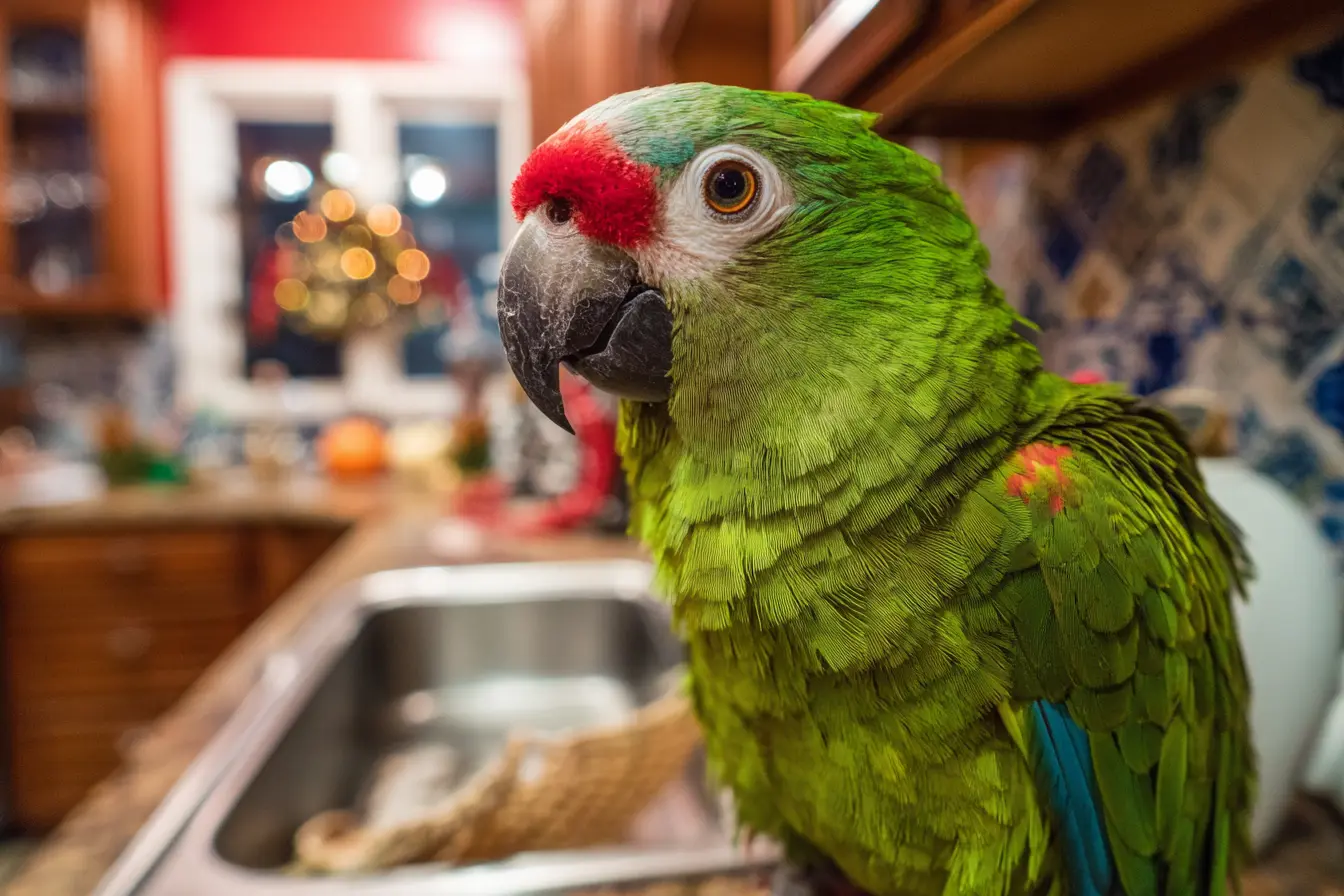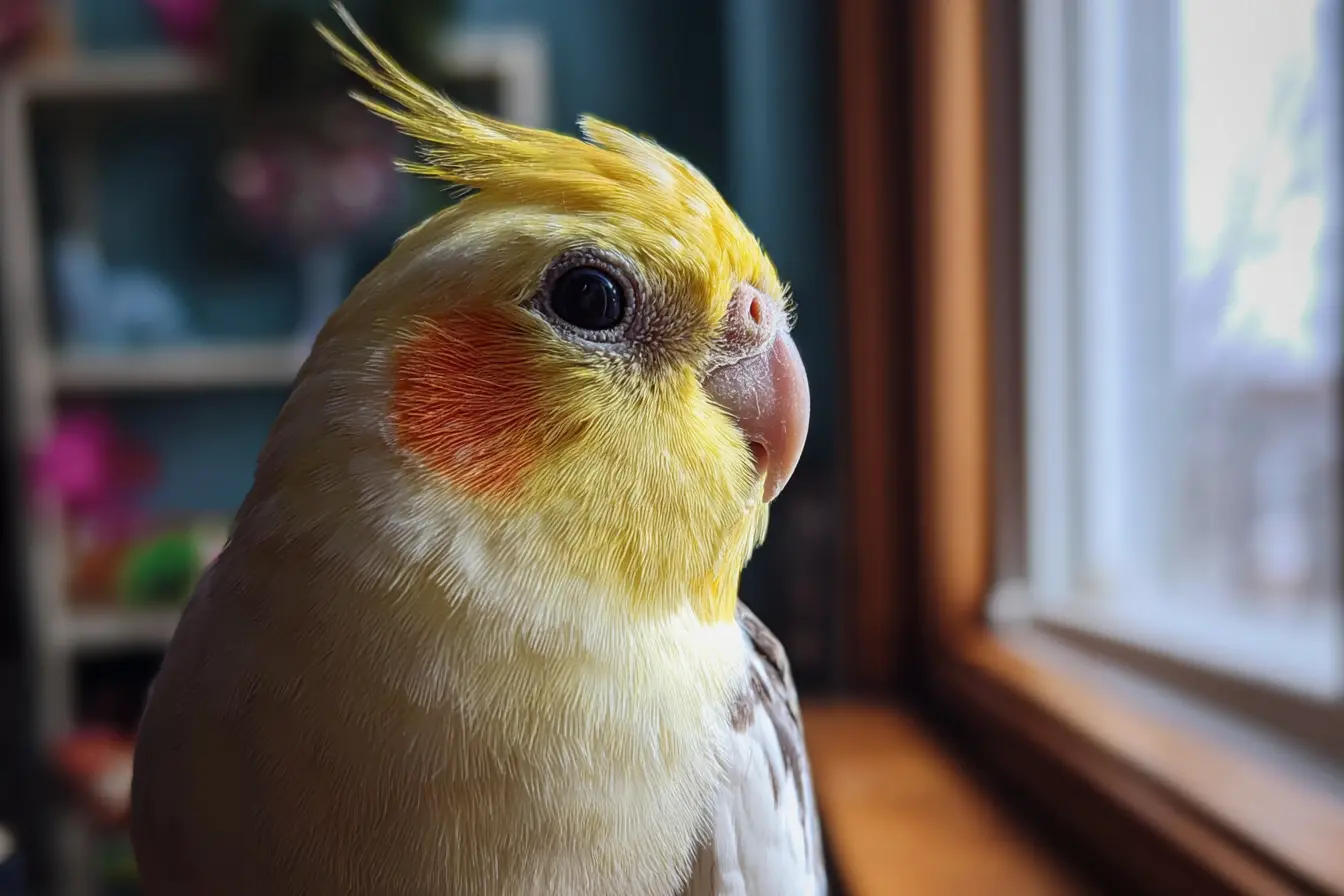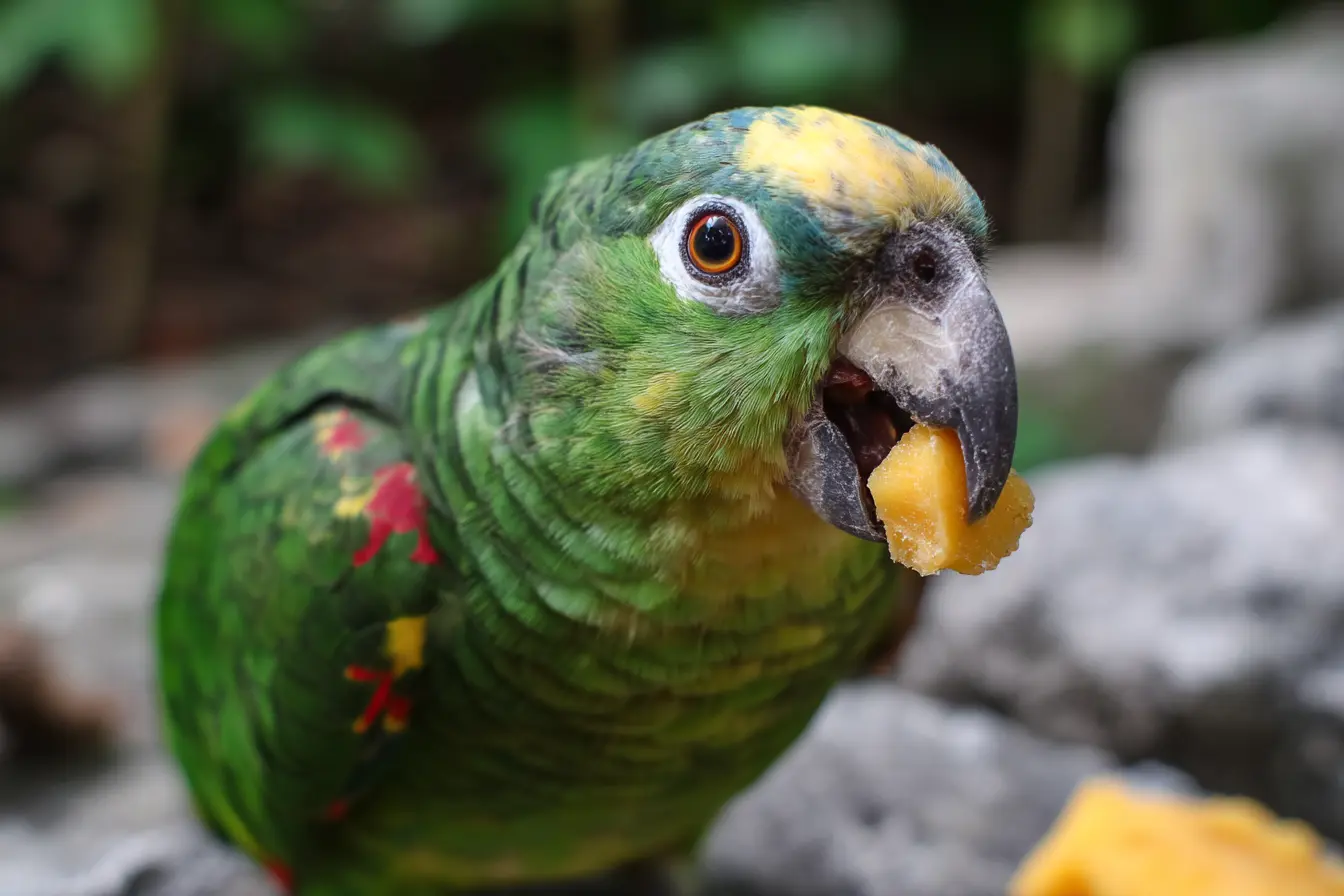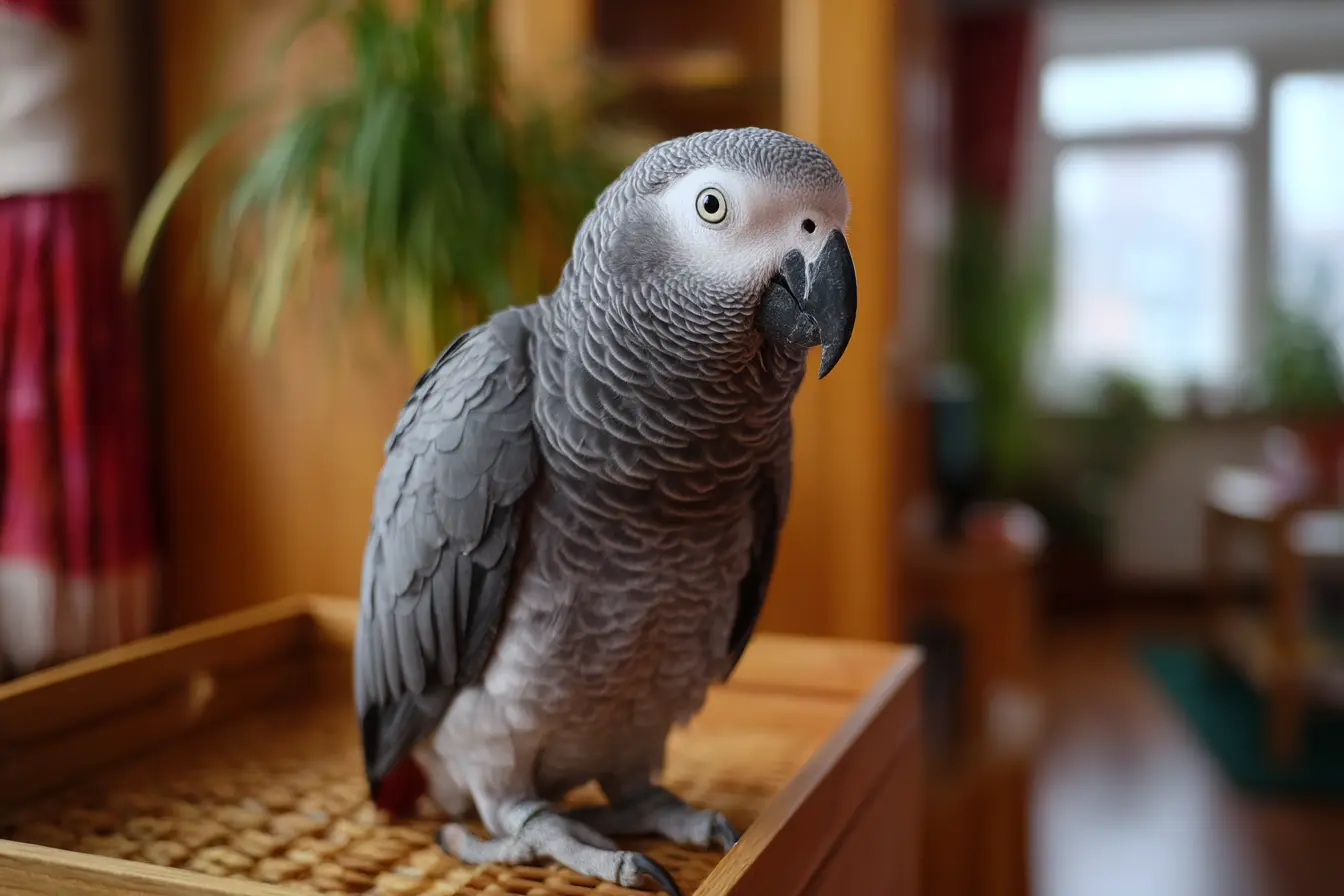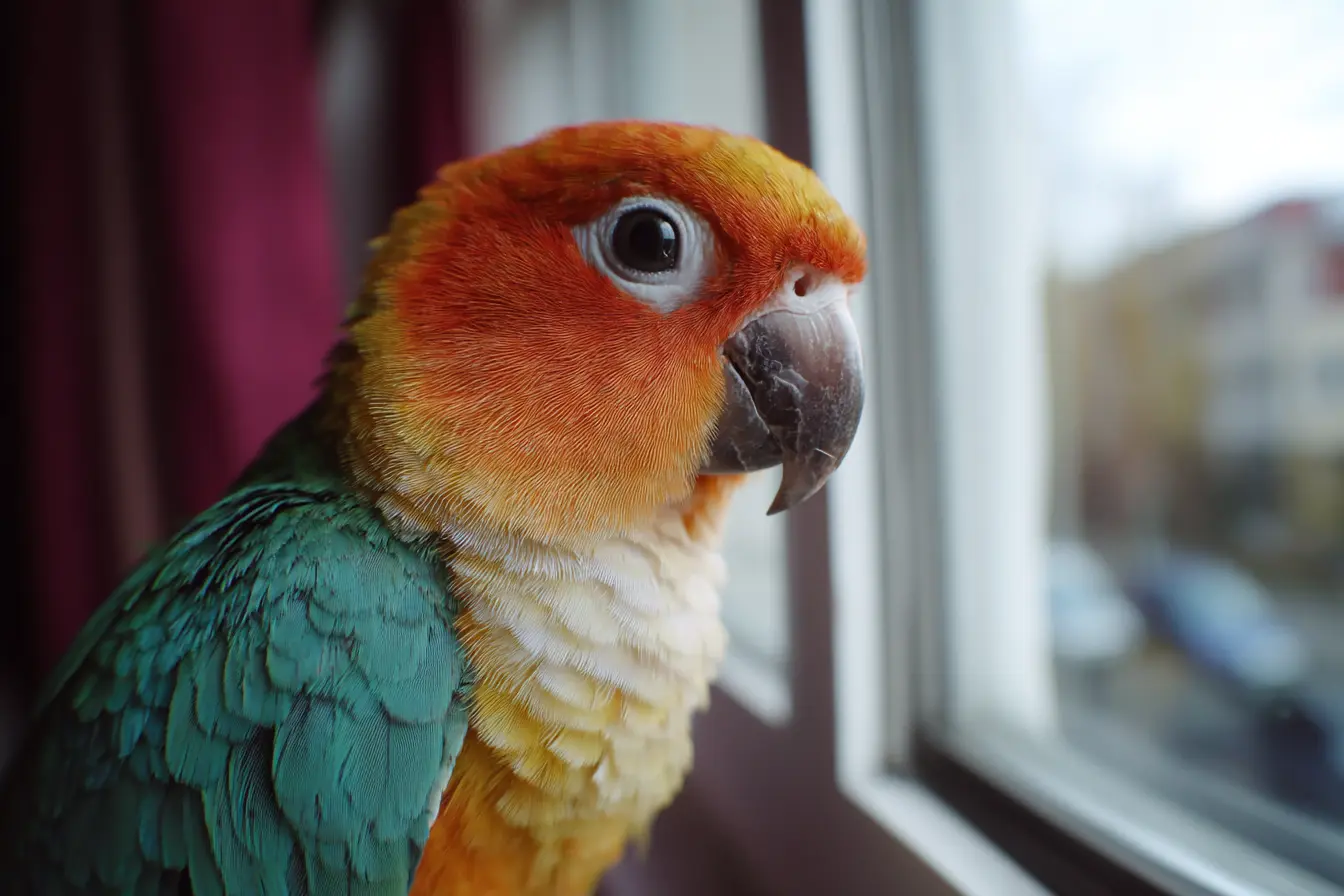
Nutritional Deficiencies in Pet Birds: Causes, Symptoms, and Prevention
Nutritional deficiencies are one of the most common health issues in pet birds. A lack of essential vitamins, minerals, and nutrients can lead to serious health problems, including poor feather quality, weak bones, and organ dysfunction. Many deficiencies result from imbalanced diets, particularly seed-only diets, which lack critical nutrients.
Understanding the causes, symptoms, and prevention of nutritional deficiencies is essential for maintaining the health and well-being of pet birds.
The Importance of Proper Nutrition
Birds have high metabolic rates and require a well-balanced diet to maintain their energy levels, immune function, and feather health. A diet lacking in essential nutrients can lead to chronic health conditions, reduced lifespan, and increased susceptibility to infections.
The most common cause of nutritional deficiencies in pet birds is an imbalanced diet, particularly one that relies too heavily on seeds. While seeds can be part of a bird's diet, they do not provide all the necessary vitamins and minerals. A well-rounded diet should include pellets, fresh vegetables, fruits, proteins, and calcium sources.
Common Nutritional Deficiencies in Pet Birds
Vitamin A Deficiency
Vitamin A is crucial for immune function, skin health, respiratory health, and feather quality. Birds that consume mostly seeds often lack sufficient vitamin A, leading to respiratory infections, poor feather condition, and eye problems.
Symptoms
- Swollen or inflamed eyes
- White plaques in the mouth and throat
- Difficulty breathing or nasal discharge
- Poor feather colour and condition
- Increased susceptibility to infections
Prevention
- Offer vitamin A-rich foods such as carrots, sweet potatoes, red peppers, spinach, and kale
- Supplement with pellets formulated with vitamin A to ensure adequate intake
Calcium Deficiency
Calcium is vital for bone strength, muscle function, egg production, and beak health. A lack of calcium is particularly dangerous for laying females, as it can lead to egg binding and brittle bones.
Symptoms
- Weak or soft bones, leading to fractures
- Seizures or muscle tremors
- Soft-shelled or misshapen eggs in laying birds
- Beak and nail overgrowth
- Difficulty perching
Prevention
- Provide cuttlebone, mineral blocks, or crushed eggshells as calcium sources
- Offer dark leafy greens such as kale, spinach, and bok choy
- Ensure birds receive vitamin D3 through exposure to natural sunlight or full-spectrum UV lighting to aid calcium absorption
Vitamin D Deficiency
Vitamin D is necessary for calcium absorption and bone health. Birds that do not receive enough sunlight or UVB exposure may develop weak bones and poor immune function.
Symptoms
- Soft bones or fractures
- Weak muscles
- Poor eggshell quality in laying birds
- Increased susceptibility to disease
Prevention
- Allow birds to spend time in natural sunlight while ensuring they are safe from predators and extreme temperatures
- Use UVB lamps indoors to support vitamin D synthesis
- Ensure calcium supplements include vitamin D3 for proper absorption
Protein Deficiency
Protein is essential for feather growth, muscle development, and tissue repair. Birds on a poor diet may suffer from slow feather regrowth, weakness, and poor egg production.
Symptoms
- Brittle or slow-growing feathers
- Muscle weakness or wasting
- Poor egg production in breeding birds
- Increased susceptibility to infections
Prevention
- Include protein-rich foods such as boiled eggs, cooked lentils, chickpeas, and mealworms
- Ensure birds receive high-quality pellets that contain essential amino acids
Iodine Deficiency
Iodine is critical for thyroid function. A lack of iodine is most common in budgerigars, as they are prone to developing an enlarged thyroid gland, also known as goitre.
Symptoms
- Difficulty breathing due to an enlarged thyroid pressing on the trachea
- Wheezing or clicking sounds when breathing
- Weight loss despite a good appetite
Prevention
- Provide iodine-rich foods such as seaweed or iodine-enriched mineral blocks
- Use iodine-fortified pellets to prevent deficiencies in budgerigars
Iron Deficiency and Excess (Iron Storage Disease)
Iron deficiency is rare in pet birds, but iron storage disease, also known as hemochromatosis, is a common problem in species such as toucans, mynah birds, and lories. Too much iron can lead to liver damage and organ failure.
Symptoms of Iron Storage Disease
- Swollen abdomen due to liver enlargement
- Lethargy and weakness
- Difficulty breathing
- Loss of appetite
Prevention
- Avoid feeding iron-rich foods such as red meat and certain cereals
- Provide a diet low in iron, especially for iron-sensitive species
- Consult an avian vet about iron-reducing diets if your bird is at risk
Preventing Nutritional Deficiencies
Provide a Balanced Diet
A varied diet is essential to prevent deficiencies. Offer a mix of:
- High-quality pellets, making up 60 to 80 percent of the diet
- Fresh vegetables and fruits, making up 15 to 25 percent
- Seeds in moderation
- Protein sources such as cooked eggs and legumes
- Calcium and mineral supplements such as cuttlebone or mineral blocks
Avoid Seed-Only Diets
A diet based only on seeds is deficient in vitamin A, calcium, and protein. Transitioning birds from a seed diet to pellets and fresh foods is essential for long-term health.
Use UVB Lighting for Indoor Birds
Birds housed indoors may not get enough natural sunlight, leading to vitamin D deficiency. Using a full-spectrum UVB lamp can help birds metabolise calcium properly.
Regular Health Checks
Routine check-ups with an avian vet can help detect early signs of nutritional deficiencies. Blood tests may be required if a deficiency is suspected.
Monitor Weight and Feather Condition
Weighing your bird regularly and observing feather quality, beak condition, and energy levels can help catch dietary imbalances early.
When to See a Vet
Seek veterinary advice if your bird shows:
- Persistent feather loss or poor feather regrowth
- Weakness, lethargy, or difficulty perching
- Breathing problems or wheezing
- Seizures or tremors
- Difficulty laying eggs or soft-shelled eggs
Early intervention can prevent serious complications from nutritional deficiencies.
Final Thoughts
Nutritional deficiencies in pet birds are preventable with proper diet, supplementation, and care. A varied and balanced diet rich in pellets, fresh vegetables, fruits, proteins, and minerals will support overall health and longevity.
Avoiding seed-only diets, ensuring proper calcium and vitamin D intake, and providing UVB lighting for indoor birds will help maintain strong bones, healthy feathers, and a robust immune system.
Regular vet check-ups and close observation of dietary habits will ensure your bird stays healthy, active, and free from preventable nutritional diseases. With the right approach, pet birds can thrive on a nutritionally complete and diverse diet.
Vets near you
Speciality vets
- Aquatics vet specialists
- Birds vet specialists
- Camelids vet specialists
- Cats vet specialists
- Cattle vet specialists
- Deer vet specialists
- Dogs vet specialists
- Equines vet specialists
- Exotic vet specialists
- Goats vet specialists
- Pigs vet specialists
- Poultry vet specialists
- Sheep vet specialists
- Small Mammals vet specialists
- Wild vet specialists
Vet facilities
- Accessible by public transport
- Blood testing
- Car park nearby
- Client car park
- Dentistry
- Diagnostic imaging
- Disabled public access
- Flea and worm treatments
- Microchipping
- Mobile services
- Neutering
- Open at weekends
- Out-of-hours service
- Referral interests
- Referrals only
- Street parking outside
- Toilets available
- Vaccinations
